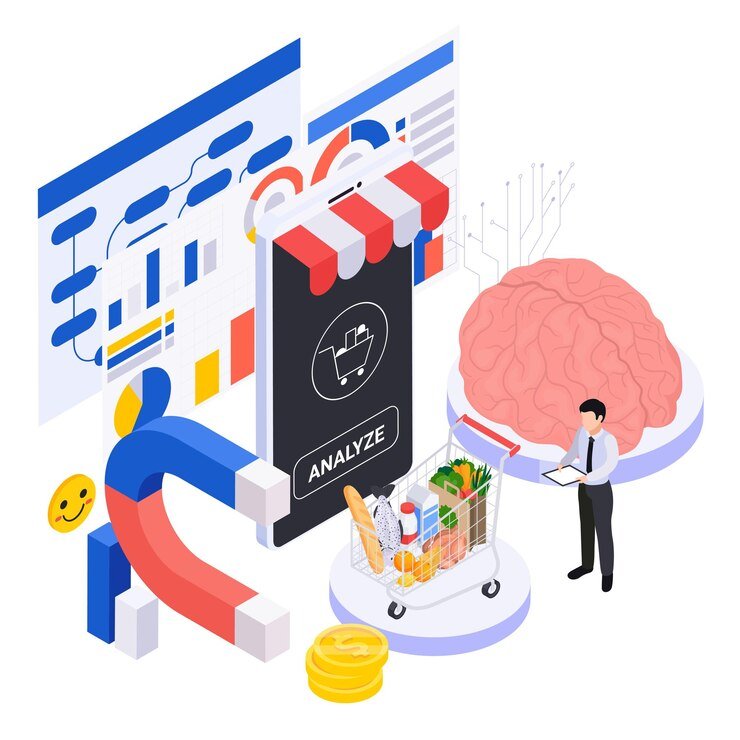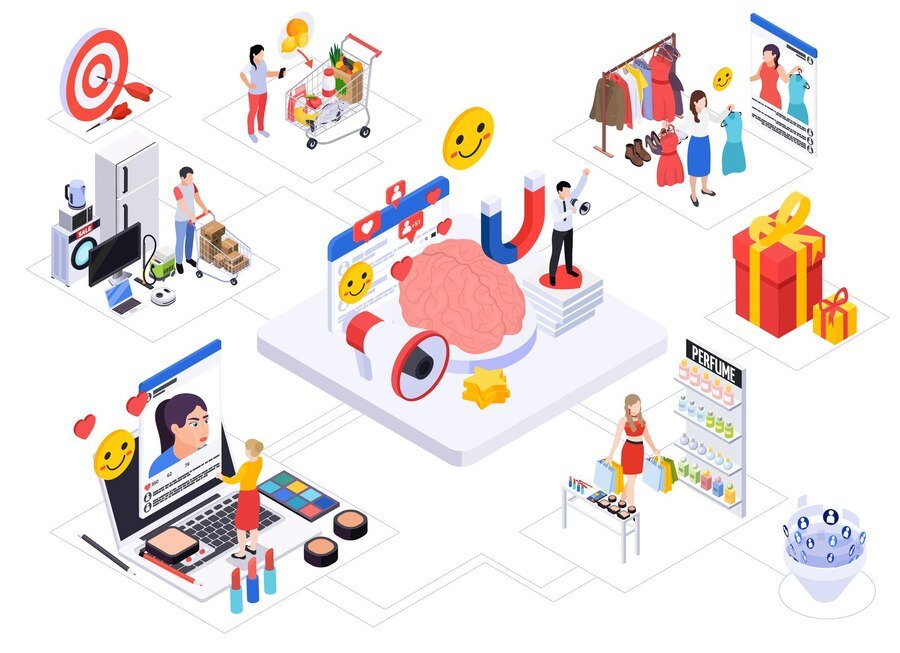Table of Contents
ToggleInfluence of Social Media Marketing on Consumer Behaviour
Introduction
Social media has transformed the manner in which businesses engage with consumers. With more than 5 billion social media users worldwide in 2025, platforms such as Facebook, Instagram, and TikTok have become a marketing essential. Social media marketing (SMM) utilizes these platforms to influence consumer attitudes, influence buying decisions, and build brand loyalty.
In this blog, we will examine the far-reaching influence of SMM on consumer behavior through the lens of contemporary methods like influencer collaborations, augmented reality (AR), and algorithmic personalization. Through the deconstruction of these strategies, we reveal the ways they transform awareness, trust, and decision-making in today’s digital landscape.
The Evolution of Social Media Marketing
Social media marketing has undergone a transformation from plain banner advertisements to dynamic, participatory campaigns. Milestones include:
- Shift from Traditional to Digital: In contrast to TV or print advertising, SMM allows real-time interaction, hyper-targeting, and quantifiable ROI.
- Platform Diversification: Facebook (2004) launched targeted ads; Instagram (2010) focused on visual storytelling; TikTok (2016) transformed short-form video content.
- Algorithmic Advancements: Machine learning now creates personalized feeds, allowing brands to reach niche audiences.
Understanding Consumer Behaviour in the Digital Age
Today’s consumers are educated, connected, and influenced by digital experiences. Key factors are:
- Peer Reviews and Influencers: 88% of customers trust online reviews as much as word-of-mouth recommendations.
- Multi-Platform Journeys: Customers find brands on TikTok, learn about them on YouTube, and buy through Instagram Shopping.
- Demand for Authenticity: Consumers prefer brands that share their values, like being sustainable or inclusive.
Influence of Social Media Marketing on Consumer Behaviour
– Augmented Brand Awareness and Discovery
- Viral challenges (e.g., #IceBucketChallenge) and popular hashtags make brands go viral naturally.
- TikTok’s “For You Page” (FYP) algorithm influences 67% of users to find new products.
– Establishing Trust Through User-Generated Content (UGC)
- UGC, such as customer images or unboxing videos, enhances credibility. For instance, GoPro’s #GoProHero campaign saw sales rise by 12% via customer adventure videos.
– FOMO (Fear of Missing Out) and Impulse Buying
- Limited-time promotions (e.g., “24-hour flash sales”) or live shopping events (popular in China’s $480B livestream commerce market) create a sense of urgency.
– Personalized Advertising
- Algorithms scan user information to deliver targeted ads. Spotify’s “Wrapped” campaign, which presents customized music recaps, experienced 21% more app interaction.
– Increased Customer Engagement
- Quizzes, polls, and AR filters (such as Sephora’s Virtual Artist) make users engage for longer periods of time, strengthening brand loyalty.
– Social Commerce Integration
- Instagram Shop and Pinterest’s Buyable Pins accelerate the buying cycle, making one-click purchases possible.

Contemporary Social Media Marketing Methods
– Influencer Marketing
- Micro-Influencers (10k–100k followers) generate 60% greater engagement because of niche audiences.
- Affiliate Programs: Creators receive commissions through custom discount codes (e.g., Fashion Nova’s 5,000+ influencer network).
– Short-Form Video Content
- TikTok’s 15–60-second videos reign supreme, with brands such as Gymshark utilizing workout tutorials to gain 5M+ followers.
– Augmented Reality (AR) Experiences
- IKEA’s “Place” app allows users to see furniture in their home, lowering return rates by 22%.
– AI-Powered Chatbots
- H&M’s chatbot on Kik offers tips on styling, increasing conversion by 35%.
– Social Listening Tools
- Brand-watch-type tools analyze sentiments, allowing Netflix to customize content according to Twitter trends.
– Ephemeral Content
- Instagram Stories’ 24-hour duration generates an urgency, where 58% of users see a brand site after watching a Story.
– Interactive Content
- Starbucks’ #RedCupContest asked users to create holiday cup designs, drawing 40,000 entries within a week.
Challenges and Ethical Considerations
- Privacy Issues: 64% of consumers are concerned about misuse of data in the context of cookie tracking and targeted advertising.
- Misinformation: Misleading fake reviews or “deepfake” influencer promotions undermine trust.
- Mental Wellbeing Impact: Excessive viewing of idealized lives contributes to anxiety, particularly among Gen Z.
Conclusion
Social media marketing has irreversibly changed the way consumers behave, transforming passive viewers into active players. Contemporary methods such as AR, influencer partnerships, and algorithmic targeting give brands the power to create tailored, engaging experiences. But ethical dilemmas regarding data privacy and mental well-being call for responsibility. With AI and virtual reality (VR) reshaping engagement, companies need to weigh innovation against integrity to maintain consumer trust. In this fast-changing environment, flexibility and authenticity are the building blocks of successful SMM.
